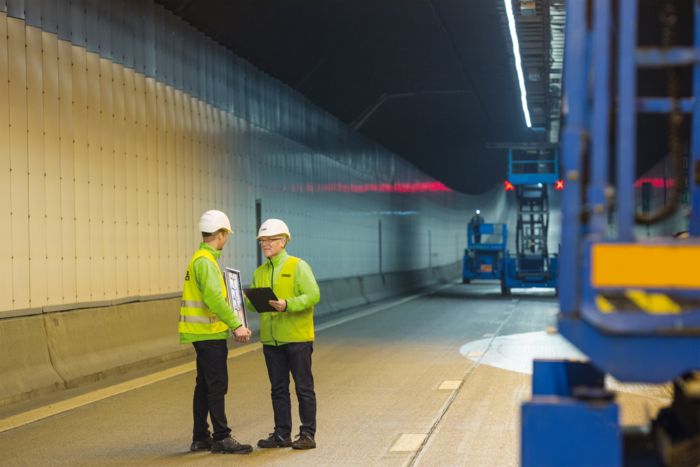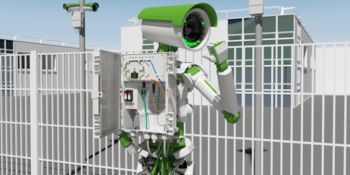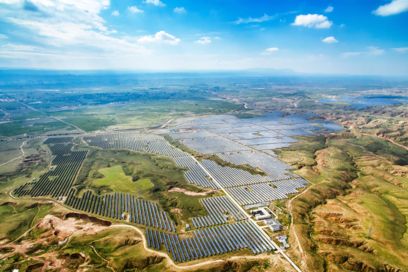Video surveillance in tunnels For high-performance, safe transportation infrastructure.

Seamless video surveillance is essential for the safety of particularly hazardous road and rail sections in tunnels. A winding road layout or different altitude profiles in the tunnel also influence camera installation. To ensure that all vehicle types are captured reliably, surveillance cameras normally have to be positioned at a specific height.
As with all other mounting parts within the tunnel, it is advantageous to mount the cameras quickly. Mounting in a tunnel is complex, because conditions there are typically dark, cold, and loud, and special devices are needed for installation on the tunnel roof. Dirty conditions are also usual when retrofitting in road traffic tunnels.

State-of-the-art road tunnels equipped with Phoenix Contact technology
Traffic surveillance in tunnels – safety first
Until now, video detection has been used to capture comparably less-complex incidents, such as detecting drivers on the wrong side of the road. The ability to link different systems, such as video, automation, and transportation technology, opens up further possibilities. The rapid development of data processing is enabling image processing systems to become increasingly intelligent.
Sensor technology is also developing further at a rapid pace, and cameras are now being used in the tunnel entrance zone for lighting control as well. They enable the influence that the different types of vehicles (e.g., car or truck) have on the lighting control system to be recorded or logged.

Smart Ethernet Box – the integrated solution
Integrated solution for traffic monitoring
Phoenix Contact provides the Smart Ethernet Box as a reliable video surveillance solution for video surveillance in tunnels. The Smart Ethernet Box is an all-in-one device featuring a newly developed housing made of special plastic. It is resistant to dirt, gases (such as carbon monoxide, nitrogen monoxide, and nitrogen dioxide), and, with spray water protection in accordance with IP65, it also withstands regular tunnel tube cleaning. And the innovative mounting adapter ensures rapid installation. This reduces the costs for lifting equipment and scaffolding considerably.
In terms of camera technology, monitors are also available with 4K resolution (3,840 × 2,160 pixels) for video walls and image surveillance workstations. This also enables several streams, e.g., four-way splits, to be displayed on one monitor with full resolution. The increasing performance capability of this technology is opening up new fields of application for image processing in video technology.






